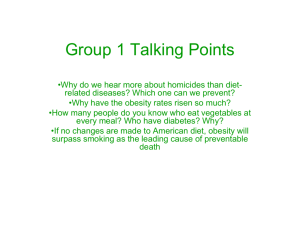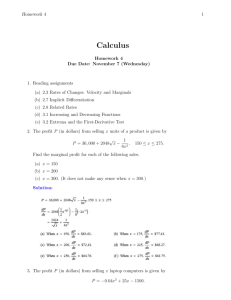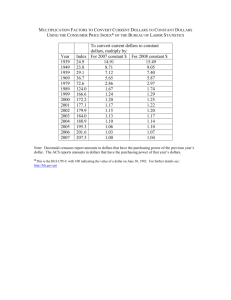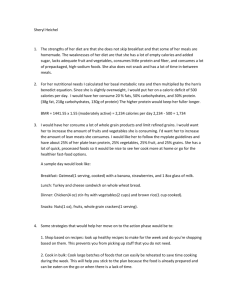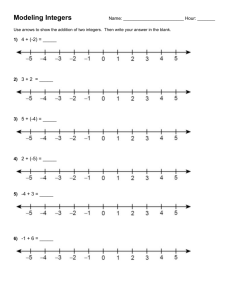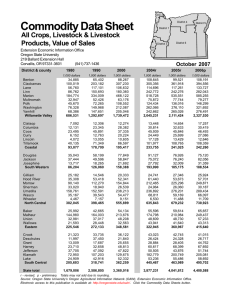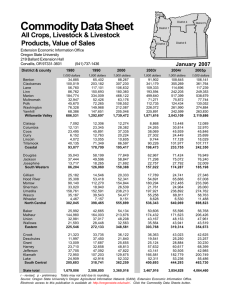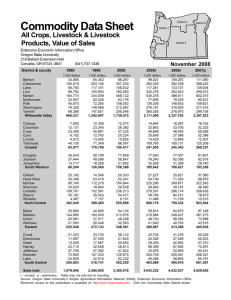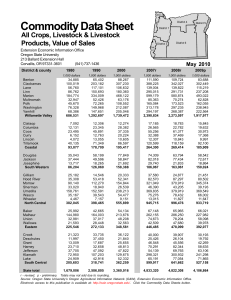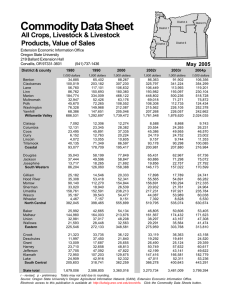the original file here
advertisement
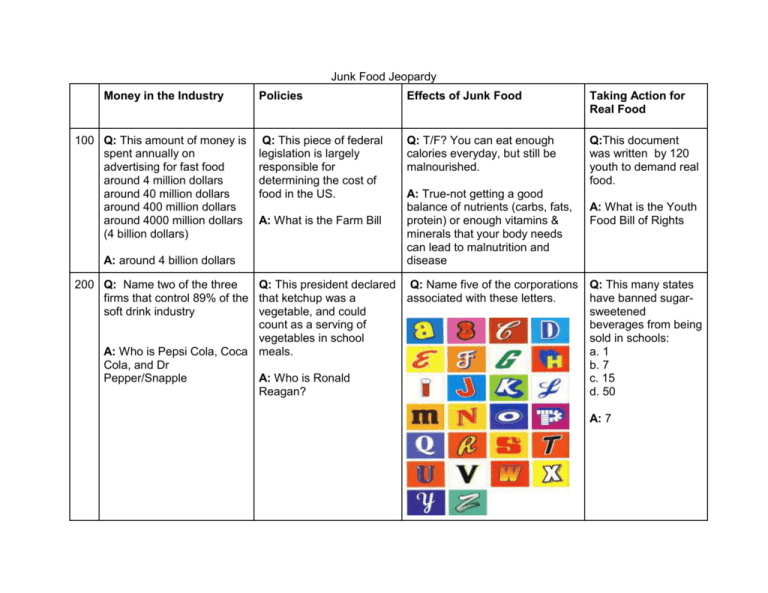
Junk Food Jeopardy Money in the Industry 100 Q: This amount of money is spent annually on advertising for fast food around 4 million dollars around 40 million dollars around 400 million dollars around 4000 million dollars (4 billion dollars) A: around 4 billion dollars Policies Effects of Junk Food Taking Action for Real Food Q: This piece of federal legislation is largely responsible for determining the cost of food in the US. Q: T/F? You can eat enough calories everyday, but still be malnourished. Q:This document was written by 120 youth to demand real food. A: What is the Farm Bill A: True-not getting a good balance of nutrients (carbs, fats, protein) or enough vitamins & minerals that your body needs can lead to malnutrition and disease 200 Q: Name two of the three Q: This president declared Q: Name five of the corporations firms that control 89% of the that ketchup was a associated with these letters. soft drink industry vegetable, and could count as a serving of vegetables in school A: Who is Pepsi Cola, Coca meals. Cola, and Dr Pepper/Snapple A: Who is Ronald Reagan? A: What is the Youth Food Bill of Rights Q: This many states have banned sugarsweetened beverages from being sold in schools: a. 1 b. 7 c. 15 d. 50 A: 7 300 Q: True or False: fast food marketing targets teenagers, especially teenagers of color Q: Which federal government agency is responsible for protecting and promoting public health through the regulation and supervision of food safety? A: True. Youth of color see more fast food advertising than their White peers, and marketers use cultural icons A: the Food and Drug (like Black athletes or Administration (FDA) singers) or traditions (like family mealtime) to help set trends 400 Q. The Food and Beverage Q: A snickers bar costs industry spends this amount less than a bunch of of money marketing to carrots because of: youth (in 2005) a) less ingredients A: $11 Billion b) cheaper labor c) it tastes better d) governmental subsidies A: governmental subsidies-the farm bill gives large subsidies to farmers that grow cash crops, like corn, wheat, and soy. This allows processors to buy the crops cheaply and process them into things like hydrogenated Q: Americans get this number of daily calories from eating out or from fast food: 500 800 1200 2000 A: 800 calories. The recommended number of daily calories is about 2000, so this is 40%. Q: In an effort to increase health outcomes, this city passed a law preventing any new fast food restaurants from opening in a low-income neighborhood for one year. A: Where is Los Angeles? soybean oil or high fructose corn syrup, which makes these ingredients cheaper for producers to put in things like snickers bars. Healthy fresh fruits and vegetables do not get as many subsidies and thus consumers have to pay for the full cost of production. 500 Q. This is the name of the marketing strategy used to get folks to buy their unhealthy products. Q: This percent of the $46 billion Farm Bill subsidy currently goes to fruits, vegetables, and nuts Q: This genetically modified food is found in candy bars, soda, and some fast food. A: What is corn? a. “cradle to grave” approach b. “race and place” approach c. “buy until you die” approach A: “cradle to grave” a. Around 25% b. Less than 10 % c. About 70% A: less than 10% Q: In this national campaign, youth are saying NO to junk food, and choosing real food. A: What is Bring Healthy Back?
